
Lester Raymond Flatt was an American bluegrass guitarist and mandolinist, best known for his collaboration with banjo picker Earl Scruggs in the duo Flatt and Scruggs.

Earl Eugene Scruggs was an American musician noted for popularizing a three-finger banjo picking style, now called "Scruggs style", which is a defining characteristic of bluegrass music. His three-finger style of playing was radically different from the traditional way the five-string banjo had previously been played. This new style of playing became popular and elevated the banjo from its previous role as a background rhythm instrument to featured solo status. He popularized the instrument across several genres of music.

"Foggy Mountain Breakdown" is a bluegrass instrumental, in the common "breakdown" format, written by Earl Scruggs and first recorded on December 11, 1949, by the bluegrass artists Flatt & Scruggs and the Foggy Mountain Boys. It is a standard in the bluegrass repertoire. The 1949 recording features Scruggs playing a five-string banjo.

Flatt and Scruggs were an American bluegrass duo. Singer and guitarist Lester Flatt and banjo player Earl Scruggs, both of whom had been members of Bill Monroe's band, the Bluegrass Boys, from 1945 to 1948, formed the duo in 1948. Flatt and Scruggs are viewed by music historians as one of the premier bluegrass groups in the history of the genre.

Will the Circle be Unbroken is the seventh studio album by American country music group The Nitty Gritty Dirt Band, with collaboration from many famous bluegrass and country-and-western players, including Roy Acuff, "Mother" Maybelle Carter, Doc Watson, Earl Scruggs, Randy Scruggs, Merle Travis, Pete "Oswald" Kirby, Norman Blake, Jimmy Martin, and others. It also introduced fiddler Vassar Clements to a wider audience. The album was released in November 1972, through United Artists Records.
Josh Graves, born Burkett Howard Graves, was an American bluegrass musician. Also known by the nicknames "Buck," and "Uncle Josh," he is credited with introducing the resonator guitar into bluegrass music shortly after joining Lester Flatt, Earl Scruggs and the Foggy Mountain Boys in 1955. He was inducted into the International Bluegrass Music Hall of Honor in 1997.
The Nashville Grass was a bluegrass band founded by Lester Flatt in 1969, after the end of his partnership with Earl Scruggs and the Foggy Mountain Boys. Flatt hired most of the Foggy Mountain Boys for his new band.
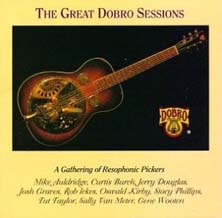
The Great Dobro Sessions is a 1994 country music and bluegrass album featuring an all-star line-up of 10 American resonator guitar players, produced by dobro players Jerry Douglas and Tut Taylor.
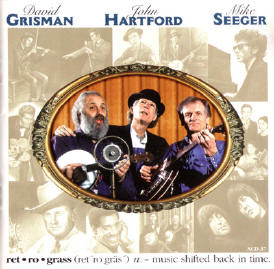
Retrograss is a bluegrass album by David Grisman, John Hartford and Mike Seeger. It was released on the Acoustic Disc record label in 1999.
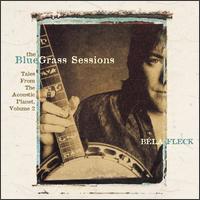
The Bluegrass Sessions: Tales from the Acoustic Planet, Vol.2 is an album by Béla Fleck. Going back to his bluegrass roots, Fleck put together a band of all-stars of the genre: Sam Bush, Jerry Douglas, Stuart Duncan, Tony Rice, Mark Schatz, Vassar Clements, John Hartford and others.
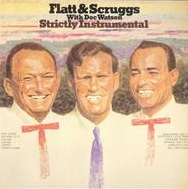
Strictly Instrumental is the title of a recording by American folk music artists Doc Watson, Lester Flatt and Earl Scruggs, released in 1967.
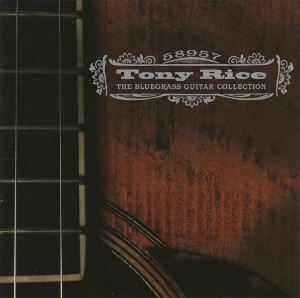
58957: The Bluegrass Guitar Collection is a compilation album by American guitarist Tony Rice, released in 2003. The title is derived from the serial number of a 1935 Martin D-28 guitar previously owned by the seminal bluegrass guitarist Clarence White and now owned by Rice.

Here Today is a bluegrass album by five American musicians David Grisman, Emory Gordy Jr., Herb Pedersen, Jim Buchanan and Vince Gill, released in 1983 on Rounder Records. This was the only album this group recorded and each continued separate careers in bluegrass, newgrass, and country music.
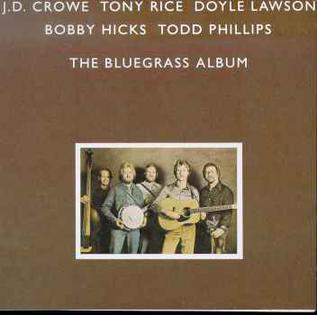
The Bluegrass Album is the debut album by bluegrass supergroup, Bluegrass Album Band, released in 1981. It's a collection of bluegrass standards by Lester Flatt, Bill Monroe, Earl Scruggs, Ralph Stanley and others. Ultimately, four volumes were released, recorded between 1980 and 1985.
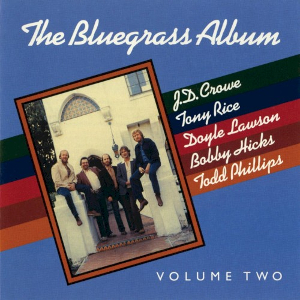
Bluegrass Album, Vol. 2 is a follow-up album by bluegrass supergroup, Bluegrass Album Band, released in 1982. As all the members already had their own duties in their groups, they originally intended to release only one album and disband. However, they continued with this volume plus four more and set the standards of the bluegrass music on a very high level.

Bluegrass Album, Vol. 5 - —Sweet Sunny South is a fifth album by bluegrass supergroup, Bluegrass Album Band, released in 1989. Violinist Vassar Clements is on this album replacing Bobby Hicks, and bass duties are taken over by Mark Schatz (instead of Todd Philips, who otherwise plays on all Bluegrass Album Band albums.
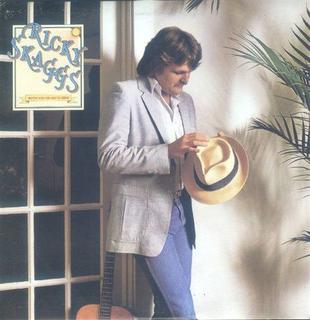
Waitin' for the Sun to Shine is the third studio album by American country music artist Ricky Skaggs. It was released in 1981 on Epic Records. Skaggs himself produced the album, and played on all the songs.

The Earls of Leicester is an American bluegrass group, assembled by Jerry Douglas in 2013 to present the music of Lester Flatt, Earl Scruggs and their band the Foggy Mountain Boys to a contemporary audience. Their eponymous debut album earned a Grammy Award for Best Bluegrass Album in 2015.

The Fabulous Sound of Lester Flatt & Earl Scruggs is a studio album by bluegrass artists Flatt and Scruggs. It was released in 1964 by Columbia Records.
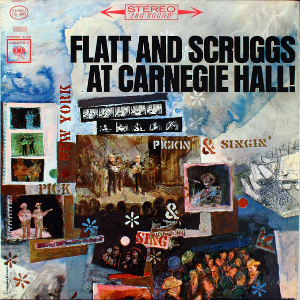
Flatt and Scruggs at Carnegie Hall! is a live album by bluegrass artists Flatt and Scruggs. It was recorded on December 8, 1962, at the first bluegrass concert ever performed at Carnegie Hall. It was released in 1963 by Columbia Records.

















